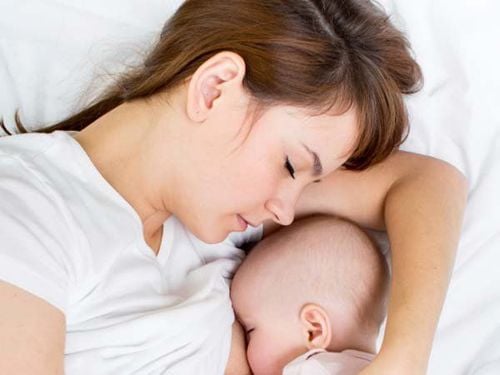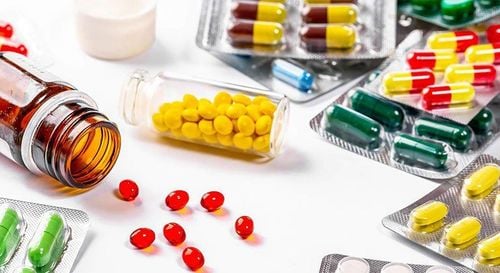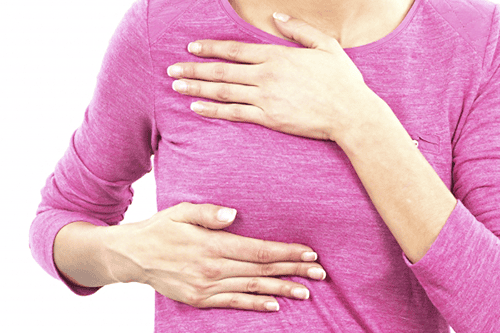This is an automatically translated article.
The article was professionally consulted with Master, Doctor Ngo Thi Oanh - Pediatrician - Department of Pediatrics - Neonatology - Vinmec Ha Long International General Hospital.Sharing a breast pump through borrowing or renting someone else's old one is quite common these days. Is this really safe for mother and baby?
1. Should you share a breast pump with others?
Breast pump is considered a top concern product of many mothers after giving birth. Many mothers have bought a good breast pump for themselves right from the time of shopping for newborn baby items. Because almost every mother understands the golden benefits that this product brings to both mother and child in the breastfeeding journey.Thanks to this breast pump, mothers can successfully stimulate milk, have an abundant milk supply, and even maintain the amount of milk for the baby to breastfeed up to 3 months later. And also thanks to this convenient item, mothers can go to work with peace of mind when at home, the amount of pumped milk is safely stored in the refrigerator to breastfeed through a bottle.
However, is there a fact that is making many mothers wonder if they should buy a new breast pump or rent a breast pump or borrow an old one from other mothers? Please answer in detail with mothers as follows. Definitely do not share a breast pump with other people because it will lead to unsafety for the baby's milk supply and affect the health of mother and baby if not sterilized and cleaned properly.
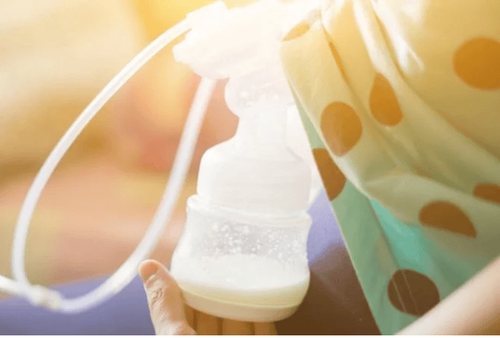
2. What types of breast pumps are there?
The construction of the breast pump includes a hood that fits over the breast, a suction pump to pump the milk out, and a removable milk jug.Breast pumps are available with manual and electric pumps. Electric vacuums run on batteries or are plugged directly into an electrical outlet. Some pumps even have a plug for use in the car (don't express milk while driving, though!).
Double breast pump sucks milk from two breasts at the same time. Single aspirator only suctions one breast at a time.
Trắc nghiệm: Những điều cần biết về kiêng cữ sau sinh
Sau sinh, cơ thể sản phụ sẽ có rất nhiều sự thay đổi, việc thực hiện tốt các kiêng cữ sau sinh và bổ sung đầy đủ các chất dinh dưỡng cho cơ thể sẽ giúp ích rất nhiều trong quá trình hồi phục sức khỏe. Bài trắc nghiệm dưới đây sẽ giúp mọi người có cái nhìn tổng quan về kiêng cữ sau sinh và thực hiện sao cho phù hợp nhất.The following content is prepared under supervision of Thạc sĩ, Bác sĩ y khoa, Tạ Quốc Bản , Sản phụ khoa , Khoa Sản phụ khoa - Bệnh viện Đa khoa Quốc tế Vinmec Phú Quốc
3. Why should you not share a breast pump?
If the milking machine is not designed for multiple use, renting or sharing it can be dangerous. Even if the appliance looks very clean, disease spores can persist in the extractor and/or its accessories for quite some time. So manual and electric breast pumps are designed for single person use. For safety reasons, this machine cannot be lent or shared.There are many mothers who misunderstand that a rental breast pump is safe for many mothers, and so is a personal breast pump (the breast pumps for rent here are Symphony and Lactina types used in hospitals). This is not true. The rental pump and the personalized breast pump are completely different. The rental breast pump is designed so that milk from the accessory kit (bottle and straw) does not come into contact with the motor (which is shared between mothers). Such designs are recognized as closed systems.
Most of the personal breast pumps, like Medela Freestyle, Pump instyle advanced, Swing maxi, Swing, Mini... are open systems. The open motor easily exposes the breast milk molecules. With the Medela Pump in Style machine, the diaphragm pressurizes suction and releases through the suction tube and the mammogram (the plastic part that captures the breast), milk molecules can penetrate the funnel, suction tube, and diaphragm. force. This pressure diaphragm unit cannot be removed for sterilization, so it is not hygienic and safe to share.
In case you change to a new set of accessories (bottle, wire and funnel), the mother's milk molecules used before have penetrated the membrane creating pressure. Each time the pump pumps, releases, these milk molecules will be blown, penetrating your milk. Although milk molecules cannot be seen with the naked eye, they are still present. A sure sign of the existence of breast milk molecules is the presence of mold in the straws, affecting the quality of breast milk drawn, thereby affecting the immature digestive system of infants and children. children. Not to mention the risk of spreading other dangerous infectious diseases.
Although breast milk is the best source of nutrition for babies and young children, now with any type of breast milk whether it is a milk source from a breast milk bank or milk donated by another mother is acceptable. It is recommended to pasteurize to kill the virus before giving it to your child to ensure safety.
During pregnancy, your baby's body is safely immune to the viruses present in the mother's body. However, if another mother carries the virus that you don't have, it will pass on to your baby through your breast milk and your baby may become very ill. Some potentially dangerous viruses that can be transmitted through breast milk include cytomegalovirus (CMV) and HIV (AIDS). Most mothers infected with CMV do not know they are carrying the virus.
The US Food and Drug Administration (FDA) believes that sharing breast pumps between mothers will bring certain risks if the pump is not cleaned and sterilized properly. These risks include the transmission of infectious diseases. The FDA believes that cleaning and disinfecting requires the removal of all liquid that has entered the machine's suction system. If proper sterilization is not possible, the FDA recommends against sharing these machines.
Companies that sell breast pumps also recommend that breast pumps be used as a personal care product, like a toothbrush, and are registered as a separate product with the FDA. To ensure safety, mothers do not share breast pumps, do not resell, or lend... it is best for each mother to buy a new breast pump separately.
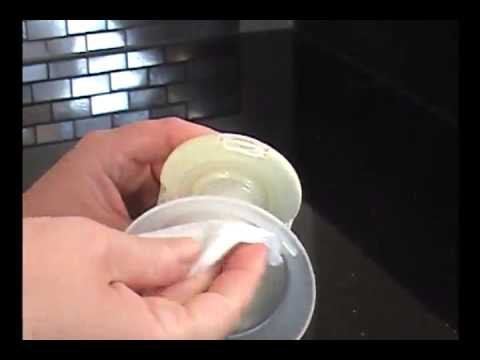
4. How to clean the milking machine
Even if you use a personal breast pump, you can still get bacteria if you don't clean it properly. According to Lewter, an engineer with the FDA's Obstetrics and Gynecological Devices branch, "Proper use and cleaning of the device protects you and your baby." FDA recommends cleaning and sterilizing after each use. You should read the manufacturer's manual carefully to know how to clean the machine.Normally, cleaning steps will include:
Wash all parts that come in contact with breast milk with cold water immediately after pumping. Wash each part separately with dish soap and warm water. Rinse each part thoroughly with hot water for 10 to 15 seconds. Place the parts on a clean paper towel on the drying rack, and let them air dry. "You can also wipe the pump body with 70-90% ethanol or isopropyl alcohol - or boil the pump parts in water," adds Engineer Lewter. If the part of the tube becomes moldy or cloudy, stop using it and replace it with another tube immediately.” If you are renting or using a breast pump for more than one person, check with your supplier to make sure that all components (including the inner tube) have been cleaned and sterilized according to the manufacturer's instructions. manufacturing.
All of the above shares have certainly given you the clearest answer on whether to share or reuse someone else's breast pump? Sharing a breast pump will lead to unsafety for the baby's milk supply and affect the health of both mother and baby if not sterilized and cleaned properly.
For more nutritional knowledge and child care for each age, parents should regularly visit the website vimec.com and make an appointment with the leading doctors, pediatric and nutrition experts of the National General Hospital. Vinmec when needing advice on children's health.






